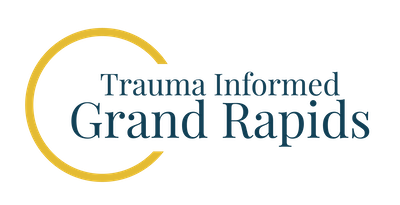Free Resources & Blog
Self-Care Checklist
Download this free reference tool to help you with a daily check in. This tool can be used for self, clients, students, and others as a reminder of what we need daily to support our body and feel our best.
TAKE THE ACE QUIZ
The Adverse Childhood Experiences, or “ACEs,” quiz is a series of 10 questions originally developed in 1995 to assess the number of adverse experiences one may have experienced in early life. Research indicates the number of ACEs one experiences in early life is linked to increased health challenges in later life. The quiz is intended as an indicator of how likely a person might be to face these challenges.
While the quiz is a helpful tool for raising awareness about the potential impact of ACEs it’s important to remember there are some important factors that were not included in the original quiz. There are many experiences that could be traumatic for children that are potentially harmful for a child’s development and wellbeing. For example, community violence, racism, other forms of discrimination, bullying, natural disasters, or housing insecurity. This means answering all the questions on the ACE quiz may not give a full picture of the adversity a child has faced – and thus would not be a true indicator of possible risk—nor a full picture of the possible solutions communities should consider.
Secondly, every individual is different, and adverse experiences in childhood affect each child differently. Just because a person has experienced several ACEs does not mean that later social, emotional, or health problems are inevitable. Some children develop resilience – the ability to overcome serious hardship – while others do not. Genetic factors also play a role, in that some children are predisposed to be more sensitive to adversity than others. And the most common factor among children who show resilience is at least one stable and responsive relationship with a supportive adult.
The ACEs quiz does not give insight into whether an individual child might be more or less sensitive to adversity and does not provide information about whether there may have been any protective relationships in place to help buffer the child from stress. The ACEs quiz can give insight into who might be at risk—not who is at risk—for certain later-life challenges. The ACE quiz also helps to build awareness about circumstances and experiences that can be harmful to normal development and assist us in creating stronger, healthier, and safer communities that get all children off to a good start in life.
To learn more about resilience, check out these three short videos on what resilience is, the science behind it, and how it’s built.
Latest Articles
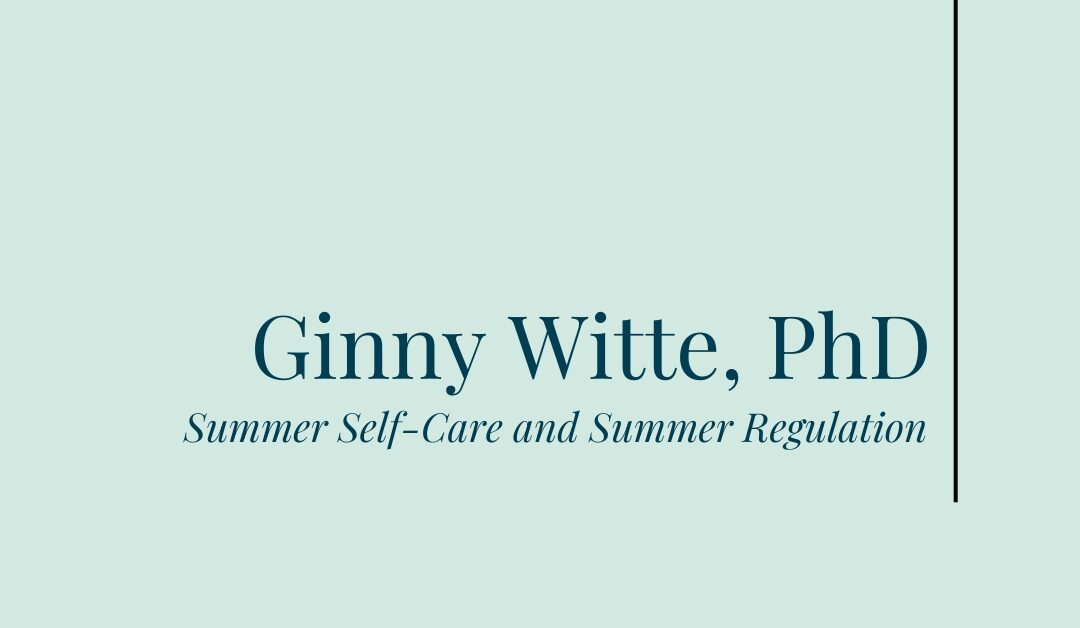
Summer Self-Care and Summer Regulation
I hope you all love summer as much as I do. I am a little like the kids. I can't wait to get outdoors, run with friends, bask in the sun, and get my hands in the dirt. Summer sights, smells, and experiences are plentiful and oh so nurturing. It’s...
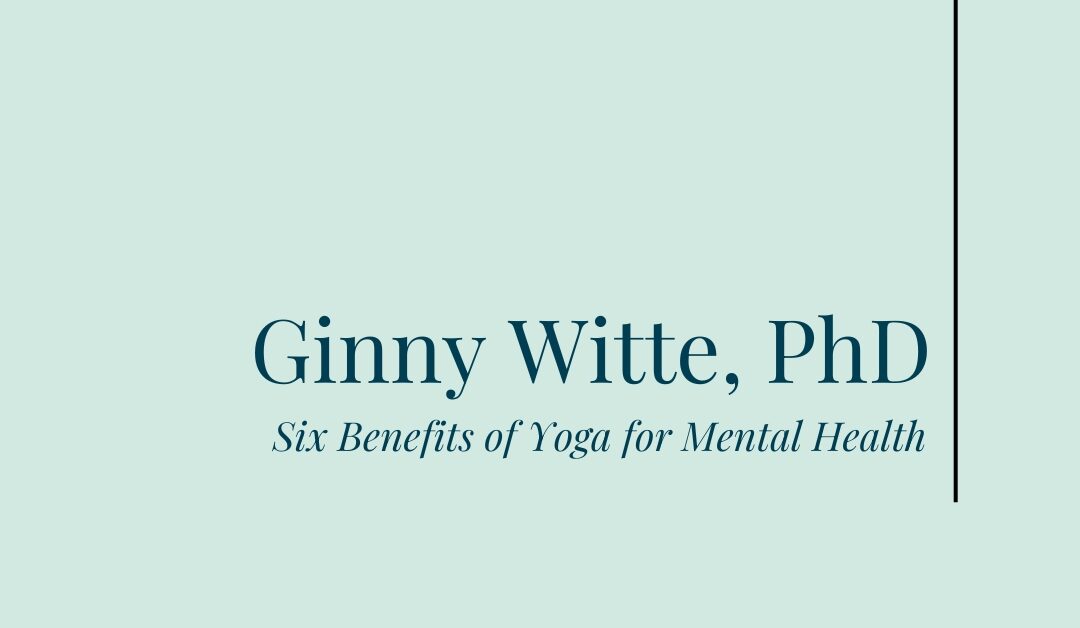
Six Benefits of Yoga for Mental Health
We all want to feel a little better; to let the anxiety flow, the sadness melt, allow anger or frustration to jel and give a little wiggle room for peace and joy to rest. When you come to the mat, you bring who you are and how you feel. When you...

What is Trauma Informed?
A trauma informed lens helps us look at individuals in light of their culture, genetics, and experiences as well as the support, care, and attachment they may have had in early life. As professionals, we may particularly look at the prevalence of...

The News and Your Health
If the news is stressing you out, you’re not alone. Many are suffering from what is called “media saturation overload” “doomscrolling,” “headline anxiety,” or “headline stress disorder.” Media overload is increasing stress levels, depression,...
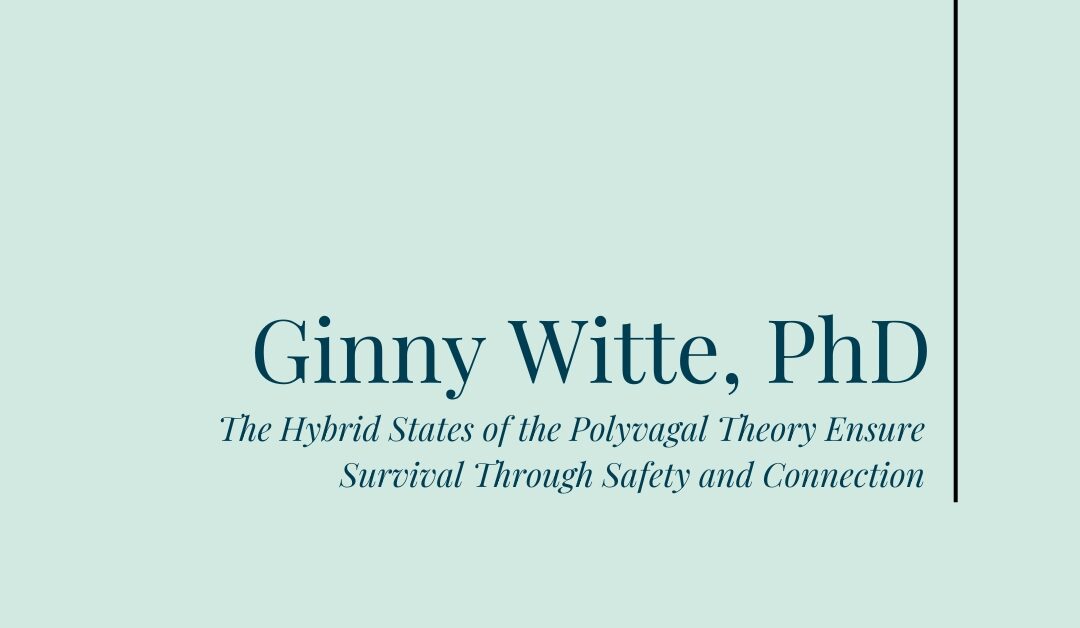
The Hybrid States of the Polyvagal Theory Ensure Survival Through Safety and Connection
The Polyvagal Theory has been particularly helpful to the clinical community in understanding trauma, especially developmental and complex traumas. Breaking down the states of the polyvagal theory has been especially helpful in aiding discussions...

Mental Health During the Holidays: When Joy Meets Pain
My dear friends, how I wish my writing could ease and release your pain, the searing of the heart, the losses of hopes and unfulfilled dreams. These days where most are celebrating and enjoying their time with loved ones can be especially hard on...

The Polyvagal Theory: The Three States
The polyvagal theory gives us a neurobiological framework that connects the mind, body, and emotions, helping us understand our behavior, particularly as it relates to trauma. The polyvagal theory is an evolutionary theory that takes us on a...

Journaling: Tips for Expressive Writing
Journaling has been found to help process big emotions. If you’ve had a really hard day (or week, or month) then creating a daily journaling practice can be a huge support to your overall well-being. Journaling has been found to improve mood, boost...
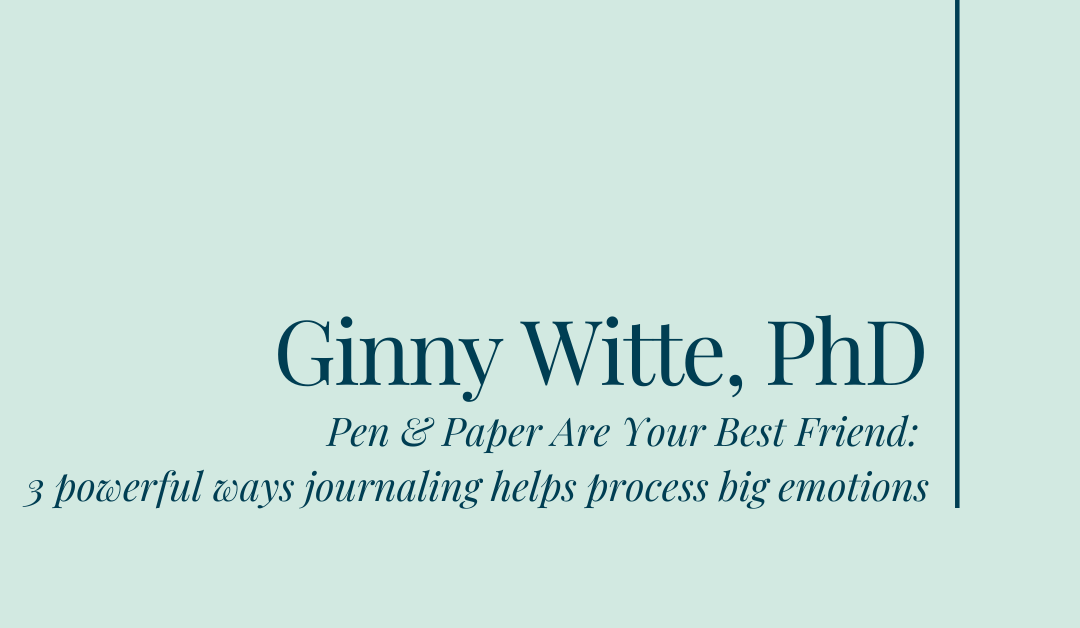
Pen & Paper Are Your Best Friend: 3 Powerful Ways Journaling Helps Process Big Emotions
“Trauma is a story waiting to be heard.” Ginny Witte We all go through seasons where life seems overwhelming, and most people don't realize how much journaling helps us cope with these phases. Life’s journey will take you down many winding roads,...

Nature as Your Teacher: A Simple Walk In the Woods Can Teach You a Lot About Life
Are you the type of person who loves a leisurely stroll through the woods? Today I have a special photoblog for you: a meditative journey and a contemplative view of nature in the hills of the Carolinas. A few years ago I was taking part in a...
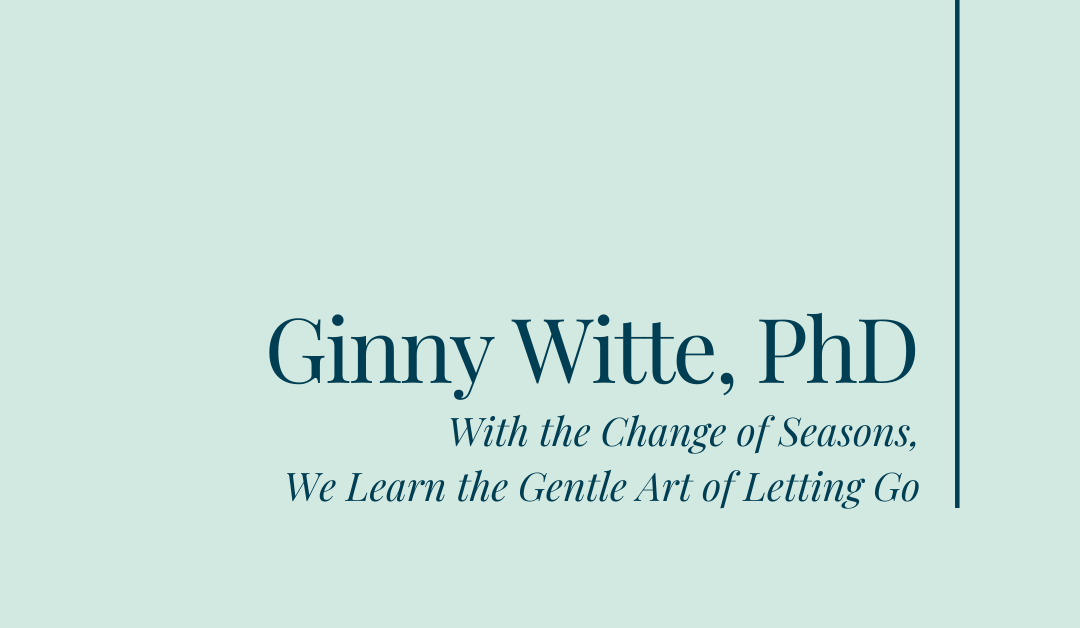
With the Change of Seasons, We Learn the Gentle Art of Letting Go
Fall has come. Every year the change of seasons happens so gradually that it’s hard to notice the transition. One morning you open your eyes and the world outside looks completely different. The pinks, whites, and reds are gone, and the...
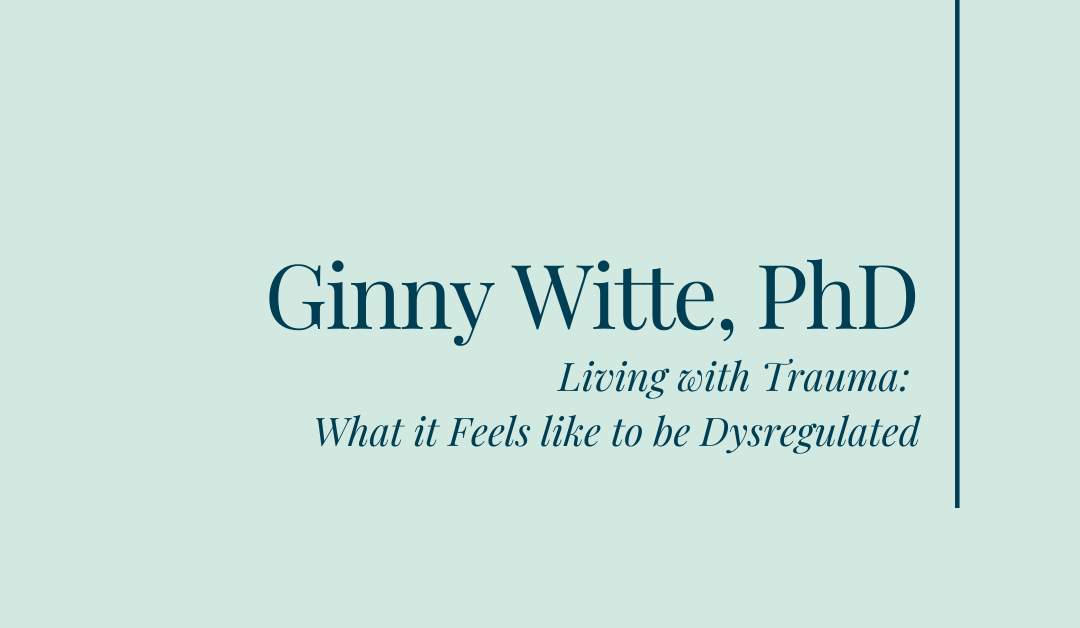
Living with Trauma: What it Feels like to be Dysregulated
If you experience trauma, a trigger can sometimes feel like the rug has been pulled out from under you. The change can come unexpectedly and leave you floundering as you try to get back up, only to have the rug pulled out again. Some people feel...
